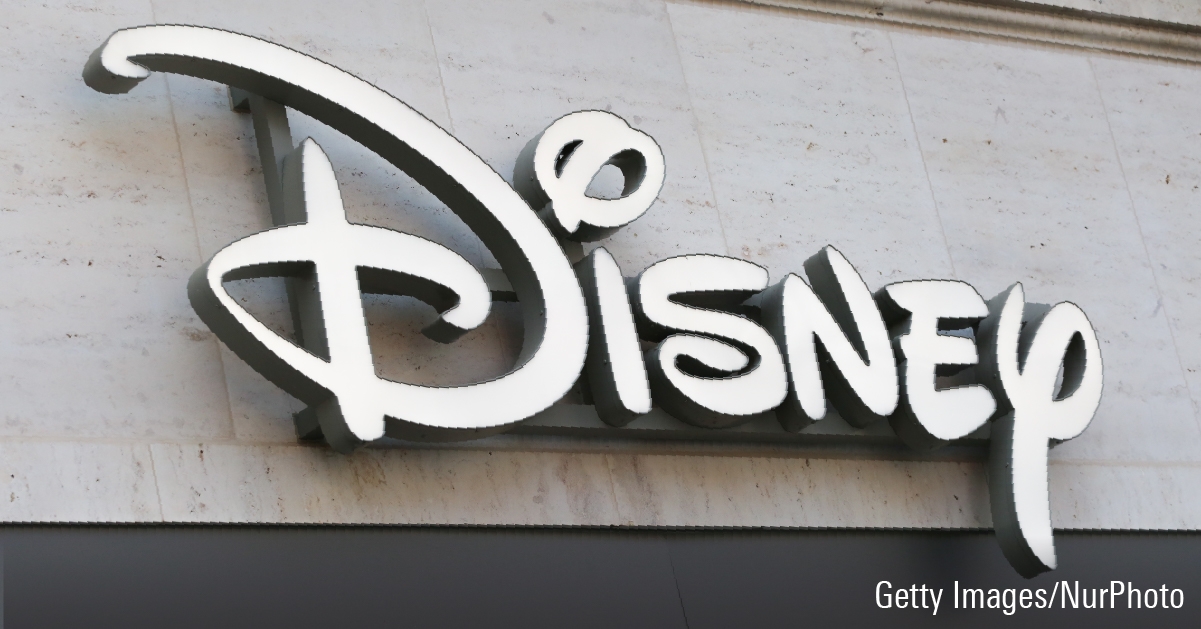After Earnings, Is Disney Stock a Buy, a Sell, or Fairly Valued?
With linear networks deteriorating, here’s what we think of Disney’s stock.

Walt Disney DIS released its first-quarter earnings report on May 7. Here’s Morningstar’s take on Disney’s earnings and the outlook for its stock.
Key Morningstar Metrics for Walt Disney
- Fair Value Estimate: $115.00
- Morningstar Rating: 3 stars
- Morningstar Economic Moat Rating: Wide
- Morningstar Uncertainty Rating: High
What We Thought of Walt Disney’s Q1 Earnings
- Entertainment linear networks continue to be a big drag on performance.
- Streaming looked good. The huge jump in subscribers was largely due to Charter cable subscribers getting access through their subscriptions. Revenue per user held up despite this, and the entertainment streaming segment has moved into profitability.
- Sports is holding up much better than we expected. ESPN continues to grow despite linear headwinds.
- Experiences revenue was again good, but management implied sales growth will return to normal after the outsized jumps in the years following the pandemic.
- After the stock’s drop, it looks modestly undervalued. Still, we can’t get too enthusiastic about this as long as linear networks continue rapidly deteriorating while making up a sizable part of the business.
The Walt Disney Stock Price
Fair Value Estimate for Walt Disney Stock
With its 3-star rating, we believe Disney’s stock is fairly valued compared with our long-term fair value estimate of $115 per share.
We project linear networks revenue (which no longer includes ESPN after the firm changed its reporting segments) to average 1%-2% annual growth over our five-year forecast. We expect growth to be somewhat choppy from year to year, mostly due to advertising revenue. We project a slight annual decline in the affiliate fees Disney receives from pay-TV distributors, due to a continuing decline in the number of subscribers to pay-TV services. However, we expect the pace of cord-cutting to slow, and the decline should be largely offset by growth in fees over time.
Read more about Disney’s fair value estimate.
The Walt Disney Stock vs. Morningstar Fair Value Estimate
Economic Moat Rating
We are maintaining our wide moat rating for Disney. Ultimately, we believe the firm’s ownership of timeless characters and franchises and its ability to continue creating and attracting top-tier content outweigh its near-term challenges related to the evolving media industry. Although we think it’s likely that the lack of the traditional cable television bundle as a foundation will keep Disney from returning to the level of profitability it routinely achieved in years past, we still expect the firm’s returns on invested capital to comfortably exceed its cost of capital over the next 20 years.
Recent struggles at Disney are related to the shift from the linear television model—wherein nearly all U.S. households subscribed to a pay-TV service offered by distributors like cable and satellite providers—to the direct-to-consumer, or DTC, streaming model. The attraction of Disney’s top-tier networks, led by ESPN, ABC, and the Disney Channel, resulted in this package of channels being included in nearly all subscriptions at industry-leading rates. Relatively high levels of television viewership also boosted advertising revenue. Cord-cutting and a decline in linear viewership have dampened both revenue streams.
Read more about Disney’s economic moat.
Financial Strength
Disney is in sound financial health. While its debt load and financial leverage are still higher than they’ve historically been, they’ve declined each year since 2020. The firm ended fiscal 2023 with $32 billion in net debt and a 2.2 net debt/EBITDA ratio, both marking their lowest levels since 2018. Leverage may take a step back in 2024 as the firm buys the remaining one-third stake in Hulu, which should be in the $10 billion range. From there, we expect Disney’s financial standing to improve further as its DTC streaming business moves to profitability by fiscal 2025.
Read more about Disney’s financial strength.
Risk and Uncertainty
Our Uncertainty Rating for Disney is High. The current evolution of the media industry is the main factor behind our assessment. Outside its parks and experiences business, Disney historically had three main sources of revenue: fees it received from pay-TV distributors to carry the Disney bundle of channels, television advertising, and licensing fees for movies and television programming distributed by third parties. All these sources are now under pressure. Cord-cutting and diminished linear television viewership have depressed carriage fees and advertising revenue. Shorter runs in movie theaters and an industry shift toward DTC streaming services have depressed licensing revenue.
Read more about Disney’s risk and uncertainty.
DIS Bulls Say
- No peer can match the depth of Disney’s iconic characters, franchises, or content library, which will keep the firm’s streaming services in high demand and give it a leg up in creating new movies and television shows.
- The decline in linear television will slow, so the value of the assets associated with it will start to shine. ESPN remains the premier brand in sports; putting it on a streaming service will open it up to a new set of consumers.
- The allure of Disney’s parks business is unmatched, and it will be a continuing profit engine.
DIS Bears Say
- Linear television will continue to decline. Even if successful, newer revenue sources like DTC streaming will never equal the profitability Disney once enjoyed.
- Disney now competes with tech companies for major sports rights, and they may have incentives to continue driving up prices. Sports remain material to Disney’s future, and being forced to pay up for critical content will depress profits.
- Too many streaming platforms now exist, and it’s questionable whether consumers will be willing to pay high prices or stick with individual services month in and month out.
This article was compiled by Leona Murray.
The author or authors do not own shares in any securities mentioned in this article. Find out about Morningstar’s editorial policies.

/s3.amazonaws.com/arc-authors/morningstar/83fcd1d4-0576-422a-a260-91e1689417ed.jpg)
/d10o6nnig0wrdw.cloudfront.net/05-31-2024/t_99626deb19c94bd4a5c406e19350f0ee_name_file_960x540_1600_v4_.jpg)
/cloudfront-us-east-1.images.arcpublishing.com/morningstar/U4OLR5WQ3JFYDHD76KVW6URKTU.jpg)
/cloudfront-us-east-1.images.arcpublishing.com/morningstar/DOFK3IUSBRF5XHSFKBZHOG4J5A.jpg)
:quality(80)/s3.amazonaws.com/arc-authors/morningstar/83fcd1d4-0576-422a-a260-91e1689417ed.jpg)